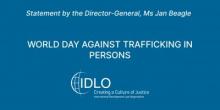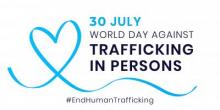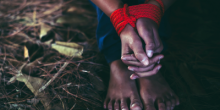Making strides to combat trafficking in persons in Liberia

Human trafficking is antithetical to the rule of law: the practice constitutes one of the most acute challenges to rights and dignity. Often a corollary of extreme inequality, human trafficking is concentrated in developing countries, with victims targeted both for domestic enslavement and smuggling across borders. Although human trafficking is outlawed by several international treaties and conventions, national legislations are frequently patchy, and enforcement weak. Even when this is not so, experience suggests traffickers remain one step ahead.
Building capacity in the justice sector is therefore important, but not always sufficient. We believe the best results combine institutional work with tackling the phenomenon at grassroots level – both empowering the victims of trafficking, and educating communities to resist it.

This World Day against Trafficking in Persons, the International Development Law Organization (IDLO) reiterates its commitment to counter human trafficking and empower its survivors.

Statement by the Director-General, Jan Beagle, on World Day against Trafficking in Persons

In commemoration of the World Day against Trafficking in Persons on 30 July, IDLO stands in solidarity with the international community and front-line actors working to combat trafficking in persons.

WEBINAR

The Republic of Liberia became an IDLO Member Party on 7 May 2019, joining a growing list of now 36 total members.
They expected things to be different.

In Liberia, the most prevalent form of trafficking in persons involves women and children being trafficked from rural to urban areas, with family members usually acting as independent traffickers. The National Taskforce on Trafficking in Persons has developed a five-year National Action Plan (2019 – 2023), with IDLO support, which shows the commitment and political will of the Liberian government to combat trafficking in persons.
STATEMENT OF THE INTERNATIONAL DEVELOPMENT LAW ORGANIZATION
High-Level Meeting on the Implementation of the Global Plan of Action to Combat Trafficking in Persons
October 2, 2017
New York
Delivered by Judit Arenas, Deputy Permanent Observer to the United Nations / Director- External Relations
Check against delivery
Excellency,



|
Policy Statements
|
|
Policy Statements
|